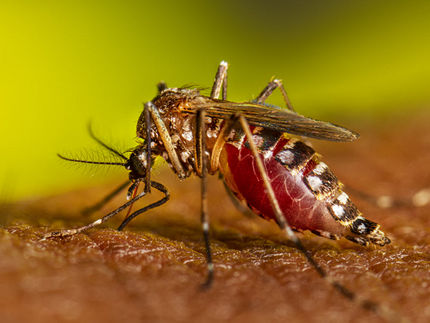Sex proteins may help combat mosquito-borne diseases
Advertisement
Researchers have identified 145 proteins from male Aedes aegypti mosquitoes' sperm and seminal fluid that are transferred during sex and may alter female egg production, feeding patterns and receptivity to further mating.
The findings could eventually lead to new ways to control the female mosquitoes that spread the dengue and yellow fever viruses and related Asian tiger mosquitoes that spread potentially lethal West Nile virus and eastern equine encephalitis. There is currently no effective treatment for dengue fever, a potentially lethal infection that affects millions of people each year.
The research, published in PLoS Neglected Tropical Diseases, was conducted by researchers at Cornell, the College of Wooster and the National Institutes of Health.
The paper's lead author, Laura Sirot, was a research associate at Cornell in the labs of co-authors Mariana Wolfner, professor of molecular biology and genetics, and Laura Harrington, associate professor of entomology, when she and colleagues, including José Ribeiro at the National Institutes of Health, conducted the research.
"By distinguishing between male-derived and female-derived proteins within the female reproductive tract, we can begin to determine which male-derived proteins affect the behavior and physiology of the females, and how they do it," said Sirot, now an assistant professor of biology at the College of Wooster.
While previous research by this team identified some reproductive proteins produced in male mosquitoes, "this is the first study to identify the male proteins that are actually transferred to the female" during mating, said Wolfner.
The researchers found 93 seminal fluid proteins and 52 sperm proteins in the females. Eventually, researchers might be able to use these proteins to develop innovative mosquito control strategies, such as reducing egg production and curbing the female's appetite for blood, which could ultimately reduce the spread of mosquito-borne, life-threatening illnesses.
Next, the team will determine which proteins have major effects on the female's physiology. In the lab, they plan to generate mosquitoes that fail to make each of these proteins, mate those males with females and observe whether the females' responses are perturbed.
"This is an exciting new avenue for identifying ultimate targets to reduce mosquito vector populations," said Harrington. "Ultimately, we plan to select the most promising candidates [proteins] as chemical targets or as a focus for the development of other methods for vector control."




























































